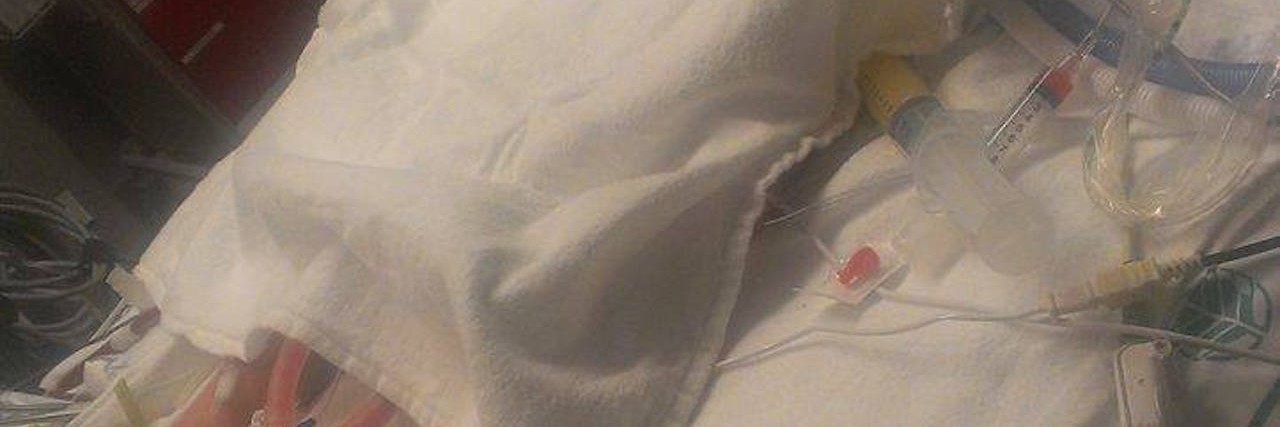
This story is about my daughter, Ariel May. She is 8 months old, and will be 9 months on July 31st. She has always been a very happy baby, loving to play with others and always smiling. She was crawling and standing up, and slowly learning how to walk while holding onto the edges of furniture. She even got her very first tooth!
We were a very happy family, we loved to give her cuddles and play with her. But six days ago everything turned upside for us. Over a period of two weeks, Ariel had slowly stopped eating, which we initially thought was due to her teething. We assumed her bottle was irritating her gums and that was why she was not wanting to take her bottle as much. On Wednesday, July 20th, we took her to the emergency room because she stopped eating altogether and was panting very quickly. She had eaten two bites of baby food and 4 ounces of formula that morning. By the afternoon, she wouldn’t touch anything. Upon arrival to the ER, they took an X-ray of her chest which showed pneumonia, so they decided to hook her up to an IV for fluids and give her oxygen so her levels would go back up. But 20 minutes after starting her on oxygen, everything changed.
She coughed, then threw up a frothy, mucus and blood-mixed liquid and lost all of her color.

Immediately, the doctor knew she did not just have pneumonia, so they began to take blood samples to test while waiting on the ambulance from a different hospital (since the one we had taken her to did not have a pediatrics floor). They also called a critical care team in, if anything were to happen on the drive.
When she arrived at the next hospital, as the medical staff was moving her from her carseat to the bed, she went into cardiac arrest. It only took them a few minutes to revive her, but they knew they had to do an ultrasound of her chest immediately to know what was going on. While doing the ultrasound, they found that she had a very rare heart defect called cor triatriatum, where the membrane that is in the heart, which helps the heart from overworking while babies are still in the womb, does not go away. The membrane in her heart had become thicker due to it growing with her heart and the blood going into the right chamber of her heart was going through a very tiny pinhole. The rest of the blood was going through the left chamber to her lungs and getting backed up in her lungs. Due to the blood building up in her lungs, they had to put her on a ventilator. When that didn’t work, they had to change over to a hand pump just to help her breathe because her lungs had collapsed.
After giving us this information, the doctors told us that the only way to fix this was to go in and do surgery. The first type of surgery she needed would require her being airlifted to a hospital two hours away. Once she arrived to the hospital, they immediately put her on extracorporeal membrane oxygenation (ECMO), a machine used to help take over the heart and lung function so her body could rest.
On Friday, July 22nd, they took her down to surgery which took four hours to complete. They decided to keep her chest open to monitor her healing and the extra blood and fluid her body was leaking, from all the stitches. The doctors put her on an open chest ECMO and chest tubes to help drain the extra fluid.
And now, because of her lungs and heart overworking for the past eight and a half months, she is going to be in the ICU for a very long time.
My daughter’s story needs to be read. Even though this condition is very rare, it goes misdiagnosed quite often, resulting in death.
I want to let parents, new parents and even other family members know about this condition, so if their baby starts “acting funny,” then they can take them to the doctor and get checked. In fact, even if the doctor seems certain, push to have tests done because you never know what could actually be going on. The sooner the doctors can catch it, the less chance a baby has to suffer and fall ill.

